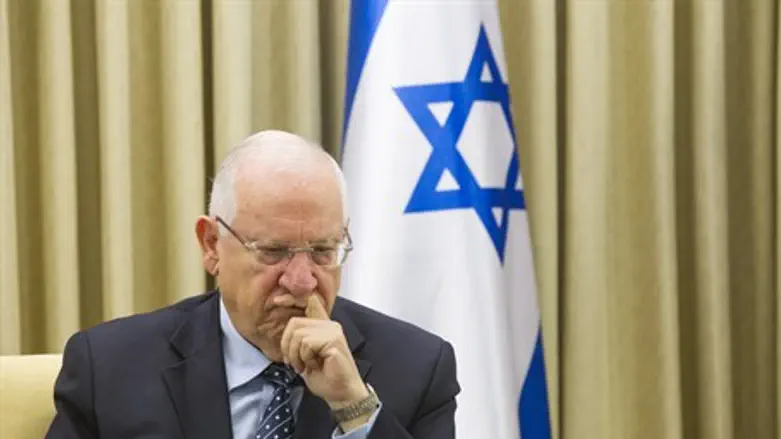
At an event marking the end of the Ramadan fast on Sunday, President Reuven Rivlin spoke with Arabic language mediaand discussed a number of issues, chief among them the relations between Arabs and Jews in Israel.
At the outset, Rivlin noted that both Jews and Muslims had fasted on Sunday – the latter for Ramadan, and the former for the Seventeenth Day of Tammuz, commemorating the events leading up to the destruction of the Holy Temples in Jerusalem. A common fast, said Rivlin, could help build a bridge to understanding to both communities.
“I am aware of the distress and pain of the Israeli Arab society - the violence in the Arab community, the shortages in housing and employment, the significant gaps in the allocation of resources and budgets,” said Rivlin. “I am working with the government on the one hand, and the mayors and companies on the other hand, in order to advance these issues.”
Although he is not considered an expert on Islam, Rivlin said that Ramadan, the 30-day fasting and penitence period commemorated by Muslims, had been “exploited” by those seeking to turn its meaning into one of criminal and murderous terrorism: "I join in the concern of those countries around us, about the increase in terrorism, and I send my condolences to the President of Egypt, and the Egyptian people, following the horrific terrorist attacks in the Sinai. In the face of these bloody events, we have the duty, all the children of Abraham, to condemn strongly, loud and clear, these atrocities committed 'in the name of God', or 'in the name of Islam’.”
“Today, perhaps more than ever, we need leadership on both sides, who do not lose their voice, and are capable of standing before their own communities without losing their inner compasses, especially in the depth of the storm,” added Rivlin. “We need leadership on both sides, uninhibited by fear, nor feeding fear. Leadership that is not driven, but that leads. Leadership that creates a common language and builds trust between the parties. Leadership that does not embolden the animosity and division between people, but rather strives valiantly each and every day towards a vision of hope and cooperation. During the days of Ramadan, Jerusalem has always worn its festive clothing. Jerusalem was and remains the focus of prayer, and of commerce and the marketplace - and this is how we want it to remain. We are working extensively to ensure a festive atmosphere in the Palestinian areas. But the Palestinian Authority have a responsibility to act decisively against terrorists seeking to sabotage our daily lives here.”
Speaking to Arutz Sheva last week, Dr. Mordechai Kedar, a noted expert on the subject, said Ramadan often inspired Muslims to act in the name of their religion. Ramadan, he said, “adds to the religious adrenaline" of Muslim holy wars in Syria and elsewhere in the Middle East, as well as the fervor of terror groups who vow to increase attacks on the West - and this "definitely motivates people to launch more attacks against the infidels and all those who are viewed as enemies of the Islamic world.”